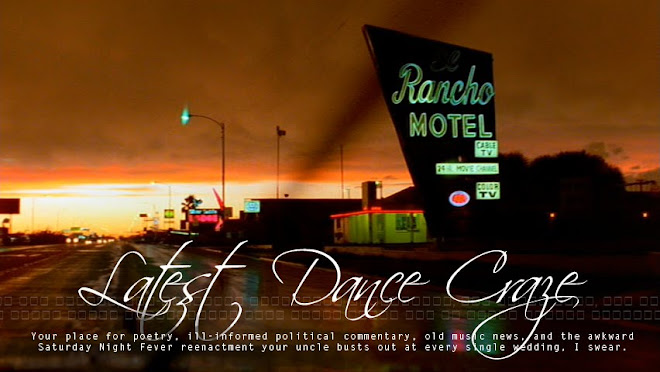
Look at the Birdie
by Kurt Vonnegut
251 pgs.
My love for Kurt Vonnegut is perpetually in flux, directly proportional to the rollercoaster quality of his work—in college, I was addicted to Slaughterhouse-Five, I loved Timequake, Man Without a Country seemed largely like unnecessary repetition, Armageddon in Retrospect reaffirmed my belief that there is a reason early and unpublished stories remained uncollected. I love him. I dislike him.
For this reason, I began his latest posthumous collection of previously unpublished stories, Look at the Birdie, with a fair bit of caution. As Sidney Offit explains in the book’s foreword, “It could be that these stories didn’t appear in print because… they didn’t satisfy Kurt” (x). To prove this hypothesis, Offit offers a memory of Vonnegut’s workrooms, which were covered in “rolled up balls of paper in the wastebaskets” (xi). And though some of the stories seem underdeveloped and many of the entries feel like kindling for a bigger fire, this collection is far less unnecessary than Armageddon in Retrospect. While not his best, the collection does help to illustrate some of Vonnegut’s hidden talents in the area of suspense and crime drama writing hitherto unknown, at least to me, and largely unexplored in his novels.
The opener “Confido” is typical Vonnegut: an innocuous science experiment threatens to ruin a family and wreak wide-spread havoc on society at large. Henry, a tinker in all things mechanical, invents a machine to satisfy humankind’s most basic desire—the need to have someone to talk to. Everything works fine at first until the machine, which they named Confido, until it begins voicing “the worst in us,” the suspicions, the self-pity, the insults. At that point, Henry and Ellen decide to stop listening. For a story most likely written well before the 21st century, I couldn’t help but wonder at the social commentary the story could offer on our present reliance on cell phones, the need to constantly communicate, and the corrosive effect it can have. Even from the grave, Vonnegut can point out our flaws with his compassion and biting wit.
An undercurrent in “Confido” could also be the relationship between the sender of the message and the receiver. Read another way, the story could be Vonnegut’s veiled way of working through the complex relationship shared by author and reader, a conflict that takes center stage in “Shout About It From the Housetops.” This story chronicles the effect an author’s writing can have on a relationship, the danger of connecting an author’s work to his life, which is a sort of strange warning to get from Vonnegut, an author who didn’t take too many pains to mask the parallels between his life and his work.
The line between fiction and memoir in Vonnegut’s work has always been vague, whether its his novel/memoir/vignette hybrid Timequake, the glimpse we are offered into Vonnegut’s insecurities through his alter-ego Kilgore Trout, or his direct intrusion into Breakfast of Champions, Vonnegut’s later works seems as interested in exploring himself as it is in narrating a plot. Even Slaughter-House Five, if the introduction can be believed, was written, at least in part, as a way for Vonnegut to process his eye-witness account of the bombing of Dresden.
Here though, Vonnegut seems to be worried about the disastrous effects of reading one’s work as a diary of one’s life. In the story, a woman writes a thinly veiled romance novel that centers on a man who greatly resembles her and a woman who shares much in common with the author. The author lampoons and caricaturizes people from the her town in the novel, which leads to her husband's firing from his job and puts a strain on their marriage. Although the two end up reconciling, the story ends on an ominous note: the narrator of the story, a window salesman who stumbles upon the husband and wife as they argue over the book, hears that the woman has penned another novel, though this time, the main character is a window salesman.
These opening stories are what we’d expect from Vonnegut, but the collection quickly moves on to a different aspect of Vonnegut’s work: the crime drama, starting with “Ed Luby’s Key Club,” and continuing with “Hall of Mirrors,” “The Honor of a Newsboy,” and the title story, “Look at the Birdie.” “Ed Luby’s Key Club,” the 52-page centerpiece, is the first story in the collection to see Vonnegut venture into the psychological thriller. The near-novella follows a Da Vinci Code-esque sequence of events after Harve Elliot and his wife Claire are framed for a murder committed by Ed Luby. Luby, a former member of the Mafia, is protected by the city’s police force (his brother is the chief), and he controls the rest of the city with his massive wealth. To clear his name, Harve will have to take down the corruption of an entire city. That is, if he can make it out of the city alive.
The collection follows “Ed Luby’s Key Club” with a trio of thrillers: “Hall of Mirrors,” a story about a murderous hypnotist, “The Honor of a Newsboy,” a relatively generic and undeveloped murder mystery, and “Look at the Birdie,” perhaps his most interesting of the trio. In “Look at the Birdie,” Vonnegut combines his interest in psychological thrillers with a broader discussion of societal conventions. The story opens with the narrator talking loudly and half-heartedly about wanting to have an enemy killed when a man sidles up next to him and offers to do the job. Very shortly, though, it’s the narrator who finds himself in danger.
The book is subtitled: “Unpublished Short Fiction,” and perhaps some of the book should have remained this way, at least in its current form—“Confido” feels like start notes for a much longer novel, “Ed Luby’s Key Club” verges on novella length, the ending of “The Honor of a Newsboy” seems tacked on—but we cling to Vonnegut and rejoice in new work, whatever state its in, because we want to live a little longer with his wry, self-deprecating, fatherly voice.
His present day equivalent could be John Stewart in one key aspect. Of course, both offer social critique, both point out absurdities, and cloak their messages in humor—many satirists do this. What connects them, though, is what made me love Vonnegut and now John Stewart: they aren’t disconnected social critics. Readers (and viewers) can perceive the hurt, the sadness over the “human condition” behind their words. We don’t want someone like Vonnegut to give up on us. Thankfully, we have these stories, even if they vary in quality, as comfort.
Galapagos
by Kurt Vonnegut
After Look at the Birdie reignited my love for Vonnegut, I decided to deviate from my reading schedule and knock off one of the final few Vonnegut novels I have yet to finish. Galapagos has long been a fascination ever since I first stumbled upon a hardcover, first copy of the novel on the dusty shelves of a used bookstore. Back then, the twenty dollar first copy price tag sent me instead to old copies of Jailbird or one of his other lesser novels, but I never lost that desire to read a book that listed this enticing tagline on the back cover: “Kurt Vonnegut takes you back one million years to A.D. 1986—and the beginning of the human race.” He uses this retrospective perch to lambast the prevailing mentality of the 1980s (especially the abuse of the environment, uncontrollable greed, and the mistreatment of the poor—sound familiar?). So what is his criticism? Humans fall victim to their giant brains, which tell them to lie and to act mule-headedly out of shame and devise elaborate ways of killing one another. Here’s one of the problems the narrator of the book has with our big brains:
That, in my opinion, was the most diabolical aspect of those old-time big brains: They would tell their owners, in effect, ‘Here is a crazy thing we could actually do, probably, but we would never do it, of course. It’s just fun to think about.’ And then, as though in trances, the people would really do it—have slaves fight each other to the death in the Coliseum, or burn people alive in the public square for holding opinions which were locally unpopular, or build factories whose only purpose was to kill people in industrial quantities, or to blow up whole cities, and on and on. (266)
Eventually, Mother Nature says enough is enough and sends mankind some mysterious virus that keeps everyone from conceiving. Everyone, that is, except for a small community of refugees from Ecuador, who have run aground in the Galapagos Islands and inadvertently "restart" humanity. It is an intriguing premise made even more intriguing by the narrator of the story (who I will purposefully leave unnamed) and the narrator’s perspective. By placing him a million years in the future (from 1986), Vonnegut can use him to show that our accepted view of the direction of evolution might just be misguided.
Before entering this book, I had my clearly defined list of Vonnegut favorites: Cat’s Cradle, Slaughterhouse-Five, Timequake, Slapstick. Now I have another book to add to the list. If you haven’t yet stumbled onto this one, make time for it. I guarantee it will find its place in your top three.
***
After my poor showing in February, I am back on track with my (now revised) schedule. In April, I will read The Anarchist by John Smolens followed by The History of Love by Nicole Krauss in May. I’m hesitant to forecast my schedule beyond May, since I read books, most often, on whims. But by the end of the year, I’d like to tackle Catch-22, One Hundred Years of Solitude, a mess of Faulkner, and a trio of Toni Morrison books: Song of Solomon, Beloved, and The Bluest Eye.
Check back at the end of next month for my review of The Anarchist by John Smolens.



